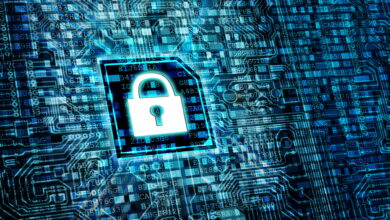Buying a New Car: How It Will Impact Your Credit

A new car brings plenty of thrills. Just imagine the smell of its interior! Imagine for a moment what it would be like feeling the wind in your hair, and the envious glances from admirers!
With the prestige of owning a car, especially on a loan, comes the question of its impact on your credit. First off, the purchase increases your debt burden and the amount of credit underutilization. So, what does this mean for your credit scores? Let’s find out.
The Impact Can Be Positive or Negative
The simple truth is car loans can impact your credit positively or negatively. Basically, the impact depends on your ability to make your payments in a timely manner. It also depends on your ability to repay the loan in full as per the sale agreement.
The reason is that credit score is greatly determined by your payment history. As a creditworthiness factor, the history accounts for 35% of your credit rating on the FICO scoring model.
Lenders seek to know how you have performed in your past credit accounts. It helps to determine the amount of risk when extending credit, making it the most significant factor of your credit Score.
Get this straight, timely payments reflect positively on your creditworthiness. Additionally, a car loan diversifies your credit mix, which also reflects positively on your credit worthiness. This is since your ability to manage various credit accounts is a positive indication of your creditworthiness.
A Positive Impact
If you manage to make your payments on time, buying a car can improve your credit. Plus, if you already have revolving credit accounts like credit cards, adding installment credit can boost your credit score.
A Negative Impact
Missing one or more payments can hurt your credit in the long run. In the eyes of lenders, missing due dates renders your car loan delinquent. The scary part is that the lender is obligated to report your delinquency to the main credit bureaus.
This is even though you may be provided with a short grace period to deposit the funds in your loan account. As such, it helps to negotiate for the delinquency not to be reported as you work towards meeting your debt obligations.
A Word of Caution
When you miss your payments, some lenders will consider you to be in default after 30 days. Others will wait 90 days to declare your loan in default.
What it means is, once a default is reported, your account will be handed over to debt collectors. This is the part where the collection agencies contact you to seek the payment with other dire conditions. If you still cannot make a deposit, your car is at a risk of repossession.
Simply put, your creditworthiness will be affected if you are late with your payments, or your debt is in default, or your account happens to go to collections or repossession.
Each of these reasons contribute separately to a negative impact on your credit report. In addition, each entry is likely to reflect on your credit history for up to seven years!
Getting Your Credit Ready to Buy a Car
If you are considering buying a new or used car, chances are that you also need a loan for the car; the choice is yours. One of the most important prerequisites is ensuring your credit is healthy. So, go ahead and get a copy of your credit report. Analyze the report keenly, dispute any errors, and verify your credit score.
If your credit score is good, you are more eligible for conducive loan terms. Don’t forget that most financial institutions consider a FICO Score of 700 or higher to be a good credit score.
With a score above 800, lenders consider you an exceptional customer worthy of even 0% APR vehicle offers.
Building a Good Credit Score for Your Car Purchase
If you have low credit scores, it is not advisable to start financing a car. Your priority should be boosting your score. Start by updating late credit accounts, making timely payments, and clearing your debts.
By now you might be wondering, what if you are new to credit? Worry not, you can still build a credit history; apply for credit cards and use them to make small purchases every month. All you need to manage is paying your bills in full and in a timely manner.
The Takeaway
Buying a car can improve your credit if you repay the loan fully, through timely monthly repayments. If not, the delinquency will lower your scores and lower your chances of getting other lines of credit at favorable terms.
To get your scores up to a ‘good’ or ‘excellent’ rating, be diligent with your existing credit. On the other hand, you can start building credit from zero through facilities such as a secured credit card or becoming an authorized user on friend’s credit card.
For more valuable information visit this website





